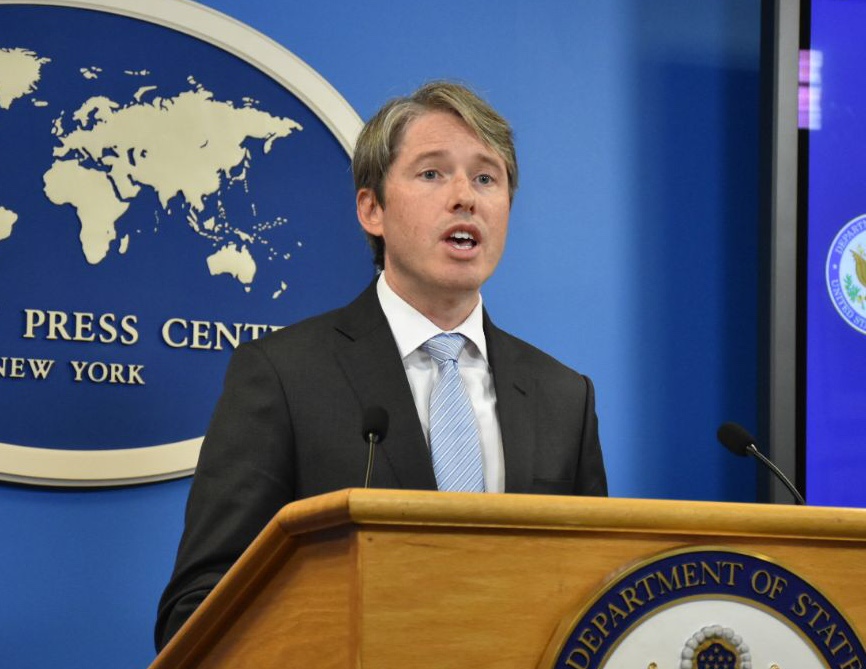The United States Government may sever intelligence-sharing ties with countries that patronise “untrusted vendors” of the emerging 5G technologies.
Mr Robert Strayer, the Deputy Assistant Secretary for Cyber and International Communications and Information Policy in the Department of State, gave this indication at a news conference in New York.
Specifically, Strayer urged U.S. allies to be wary of Chinese telecommunication companies, especially Huawei, a global leader in 5G technology component supply, over cybersecurity concerns.
He said: “We have important information-sharing relationships around the globe with countries. We benefit, our partners benefit.
“We want to make sure we can maintain those relationships by having a vigorous flow of information, a bilateral flow of information.
“But if countries implement in their telecom networks that are doing 5G untrusted vendors, we’re going to have to reassess how we share information with them to ensure that we’re not compromising that very vital data.”
News Agency of Nigeria (NAN) reports that the warning comes as countries around the world upgrade their telecommunication systems to the 5G network.
On Tuesday, the Nigerian Communications Commission (NCC) announced that it had approved the spectrum for the trial of 5G services in the country.
Huawei is expected to play a leading role in the supply of both the hardwares and softwares of the technology considering its strong presence in the sector.
According to reports, the telecomm companies in Nigeria currently rely substantially on Huawei for their infrastructure, including hardwares and softwares.
The U.S. is a key intelligence sharing partner of Nigeria, especially in the latter’s fight against terrorism, illicit financial flows and allied cross-border crimes.
Strayer noted that 5G would provide consumers, including businesses and governments, with up to 100 times faster connections than 4G networks.
He said tens of billions of new devices would be connected to the Internet in the next few years, sharing massive data that would be critical to national security, human rights and economic prosperity.
“Because of the essential role that vendors play in networks and their maintenance, they could be ordered to undermine network security.
“They could be mandated to steal personal information or intellectual property, conduct espionage, disrupt critical services, or conduct cyber attacks.
“We are concerned that China could compel actions by network vendors to act against the interests of U.S. citizens and citizens of other countries around the world,” Strayer said.
He said the National Intelligence Law and other legislations in China required the country’s citizens and organisations to cooperate with Chinese intelligence and security services.
“We want all countries around the world to think carefully about the security practices that should be in place to secure these 5G technologies.
“We encourage countries to adopt a risk-based security approach, and they should do that for any type of information or communications technology,” Strayer said.
In May, the administration of President Donald Trump added Huawei to the list of companies barred from receiving components from U.S. exporters without a license.
Trump also signed an executive order that provides the ground for banning the company from selling in the U.S.
The president urged American companies to “step up” and become viable alternatives to Huawei in the provision of 5G networking infrastructure.
However, industry watchers believe the U.S. government’s move against Huawei, which it is now extending abroad, could delay the rollout of 5G services around the world.
“This is because barely any U.S. companies manufacture the most critical components of the 5G technology”, says Sherisse Pham, a CNN tech and business reporter.(NAN)




 Premier League
Premier League